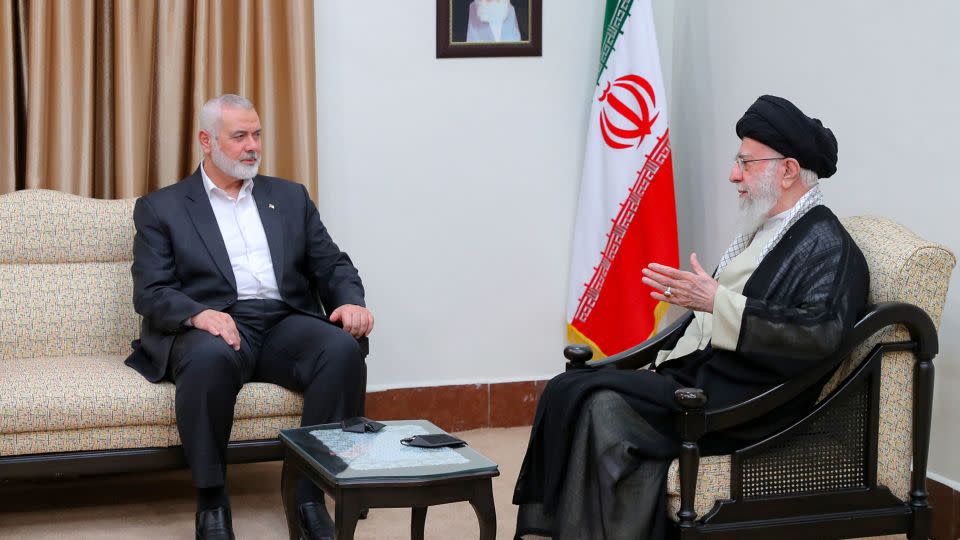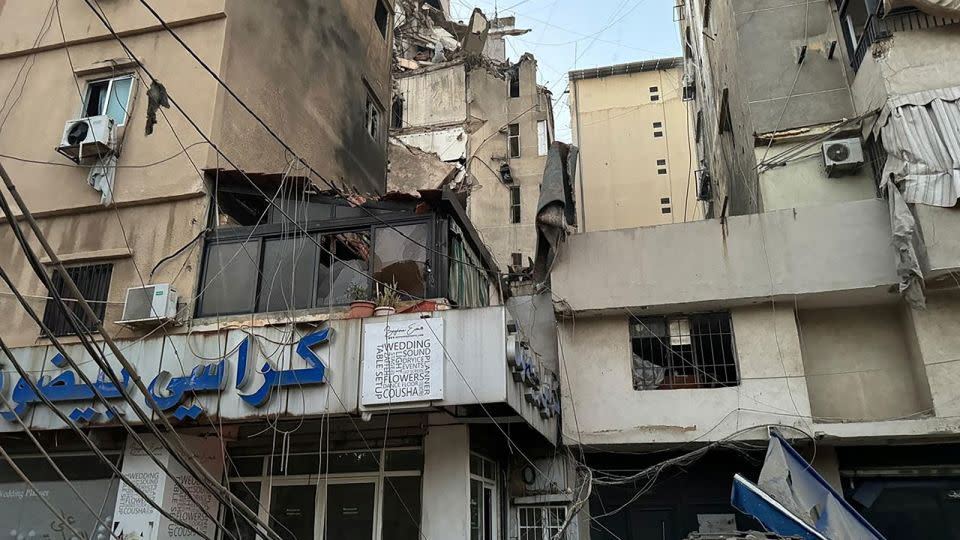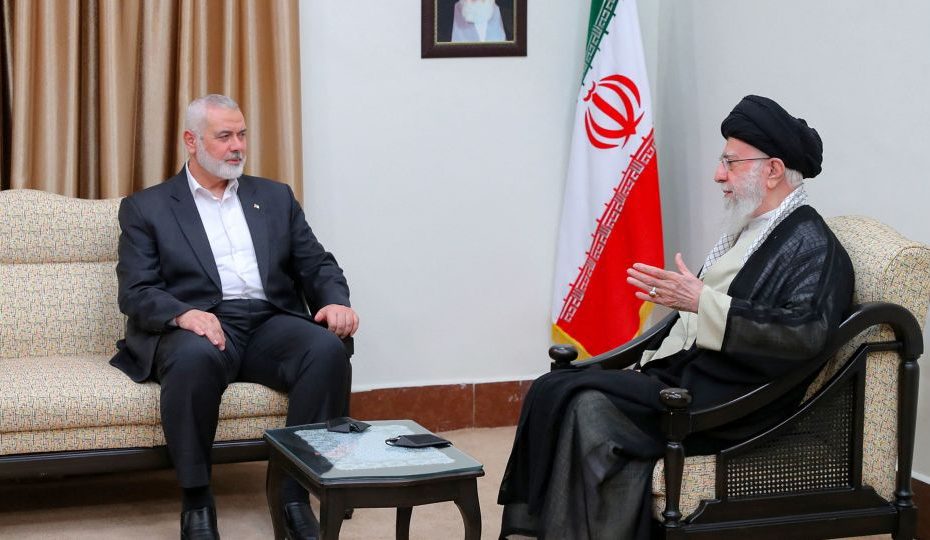One of the few things that worked in Iran's favor after the humiliating news that Hamas leader Ismail Haniyeh was assassinated in the Iranian capital last night is that the regime controls most of the information the world sees.
What Iran has said so far is that Haniyeh died after being hit by an “air-guided projectile” in Tehran, where he was attending the Iranian presidential inauguration. But we know little else. Israel has not claimed responsibility for the attack, but has previously vowed to eliminate Hamas and its leaders after the October 7 attacks.
Haniyeh's death came hours after Israel confirmed it had carried out a strike in Beirut, Lebanon, on Tuesday that killed the top military commander of Hezbollah. Hezbollah is another Iranian-backed militant group blamed by Israel for a deadly attack on the Israeli-occupied Golan Heights.
The precise details of what happened around 2 a.m. (5:30 p.m. ET) in Tehran will determine what happens next as Iran seeks to present a narrative that justifies and shapes its response.
Whatever the truth and whatever Iran has to offer, the attack is clearly a serious violation of its sovereignty and the supposed security bubble of the Iranian capital. Haniyeh was the regime’s guest and its role as a regional power will be jeopardized if it is unable to provide basic security for visiting allies.
There are reports that he was staying at a veterans' boarding house, and it is unclear whose technical responsibility it was to protect this facility – and whether the elite Revolutionary Guards (IRGC) will be explicitly embarrassed, beyond the broader humiliation of an alleged Israeli assassination deep inside Iran.


But Iran has endured similar abuses in the past. The death of its leading nuclear scientist, Mohsen Fakhrizadeh, was met with limited outrage in 2020. The killing of Quds commander Qasem Suleinami, the country’s most legendary military figure, months earlier had prompted fiery rhetoric, but instead a limited hit on a remote U.S. base. Iran has backed down before—and could do so again.
There has been no shortage of angry rhetoric the day after the attacks, but there is no easy path for Iran. It is clear that Tehran has been reluctant in the months since October 7 to launch its most ferocious proxy, Hezbollah, into a full-scale war with Israel from Lebanon. Aside from the enormous humanitarian horror that such a conflict would pose for both the Lebanese and the Israelis, Hezbollah remains a powerful card that Tehran can probably play at least once. The regime retains clear ambitions in its nuclear program and a military that has been hollowed out by sanctions, so Hezbollah is a trump card that must be brought to the table with a sharp eye and in good time.
Iran also attempted an unprecedented direct attack on Israel in April, after senior IRGC commanders were killed in an Israeli raid on Damascus. In short, the 300 drones and missiles fired directly from Iran into Israel simply did not get through. About 99% of them were intercepted.


The regime’s response to Haniyeh’s death will define its role as a regional power, and if it doesn’t appear strong enough, it risks slipping away. A stealthy, asymmetric attack weeks from now might not repair the damage to its prestige.
The risk of the unknown territory we find ourselves in is that the severity of the expected responses is not defined – the tit for tat is taking place in an environment that is evolving by the day. Indeed, the characters making the decisions are changing rapidly, or are themselves under intense domestic pressure. This simply accentuates the risk of miscalculations, or of actions being taken to satisfy selfish, insular concerns, rather than broader regional impact. In short, it is a mess that is growing, and with it the potential for the unexpected.
Iranian Supreme Leader Ali Khamenei’s first statement on the matter was about Israel: “You murdered our beloved guest in our home and now you have paved the way for your severe punishment.” But remember, this is a retired octogenarian leader who has just weathered years of popular unrest and increasing conflict with Israel, and 24 hours ago saw a surprisingly moderate president, Masoud Pezeshkian, sworn in. He exudes as much strength internally as he does internationally.
Separately, Hezbollah has been plunged into acute crisis, though the militant group apparently wrongly targeted Druze schoolchildren in the Golan Heights over the weekend. It may feel that the attack on Haniyeh has taken the spotlight off it to respond, for the time being, though it may be caught up in Iran’s eventual response. But the fact that the killing of its commander, Fuad Shukr, now seems a distant memory shows how quickly events are unfolding.
Tehran is taking its time to reveal how, once again, its inner sanctum was violated by Israel. The IRGC followed up with a statement about Haniyeh at 2:50 a.m. U.S. time, but ultimately evaded most of the details about how he was killed. Perhaps it doesn’t know, or doesn’t want to say, or is trying to figure out what to say in order to come up with a response that fits—and that it can execute.
Yet red lines have been crossed for months, and this morning we climbed a few rungs higher on the ladder of escalation. The agonizing question of the next 24 hours—as Iran shapes its narrative about how this great humiliation came about—is what rungs remain on this well-trodden ladder, and what stands at the top?
For more CNN news and newsletters, create an account at CNN.com

